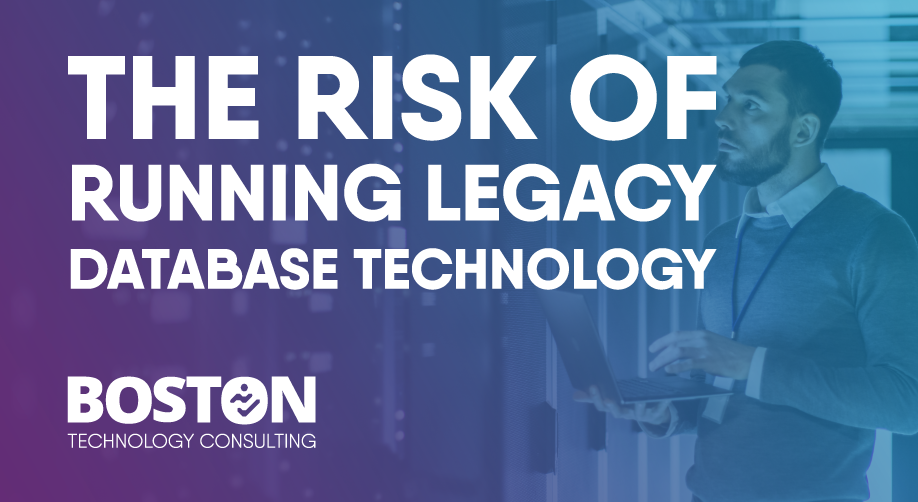
As businesses strive to remain competitive, the use of legacy technology can present a major risk. This is particularly true regarding databases, where outdated architectures can lead to decreased operational performance and vulnerability. In this blog post, we'll explore the risks in running legacy database technologies and provide tips for migrating to more modern platforms.

According to Gartner, the global market for enterprise software is expected to grow by 9% in 2021. Of that amount, only $4.9 trillion was spent on database infrastructure as a service, and yet, according to Gartner, over half of all organizations run some type of legacy system.
This is a huge problem; not only does it mean that businesses are spending billions of dollars on outdated technology, but it also creates a lot of risk for IT departments.
Here's a look at the five risks of running legacy database technology:
1. Security issues
Legacy systems were built before modern security practices became standard practices. As a result, these systems tend to be more prone to vulnerabilities.
For instance, SQL injection (SQLI) attacks are common. These occur when hackers insert malicious code into a web form field that allows them to access sensitive information stored in the database.
Another issue is that legacy systems typically lack basic encryption capabilities. Hackers can easily steal confidential data from these systems.
2. Data loss
Data loss is another big concern. When a company upgrades its database technology, it usually loses all the data stored in the previous version.
That's because upgrading a database requires migrating all of the data from the old format to the new one. Unfortunately, this process doesn't always run smoothly.
Sometimes the migration fails, leaving the company with a lot of useless data. Other times, the upgrade goes so well that the company ends up with too much data.
3. Performance problems
Legacy systems may perform poorly compared to newer versions.
They may require extra resources to maintain, making them expensive to operate. They can also be difficult to scale which will require additional hardware to handle peak loads.
4. Outdated software
Let's not forget the fact that legacy systems often use older versions of software, meaning they have fewer features and bugs than their more recent counterparts.
It's not uncommon for companies to spend years using an outdated version of Microsoft Office or Adobe Photoshop. The same thing happens with database technology.
5. Lack of innovation
When you run legacy technology, you lose out on innovation. Most developers focus on creating new products rather than improving existing ones.
As a result, legacy systems get left behind as the industry moves forward.

Before getting into the specifics of migration, let's first look at why it's important for businesses to move away from legacy systems. Database architecture affects everything from performance (speed of data retrieval) to security (vulnerability). The longer you stay with an outdated architecture, the greater your vulnerabilities are to attack.
Cyber attackers know how these systems work and will exploit any weakness they find since there is low effort needed on their part due to penetrating your defences. However, upgrading to a modern platform provides mitigations for many known attacks as well as opening up possibilities for features that were not possible on previous iterations.
Finally, staying current allows you to keep pace with customer requirements without significant investment in custom coding – this speaks directly to maintaining or gaining a competitive advantage in today's business world. Regardless of these factors – performance, security, or modernization – we still see organizations struggle with new technology adoption.
Running legacy databases is a risk to your organization and could result in catastrophic consequences. To avoid this, CIOs need to plan for data migration projects and ensure leadership is on board from the beginning. By understanding both short-term and long-term risks, you can make informed decisions about your database technology strategy.

Upgrading your legacy system for data migration is crucial. Get in touch with our consultants who are ready to assist you in planning your data migration projects. Contact us today at [email protected].